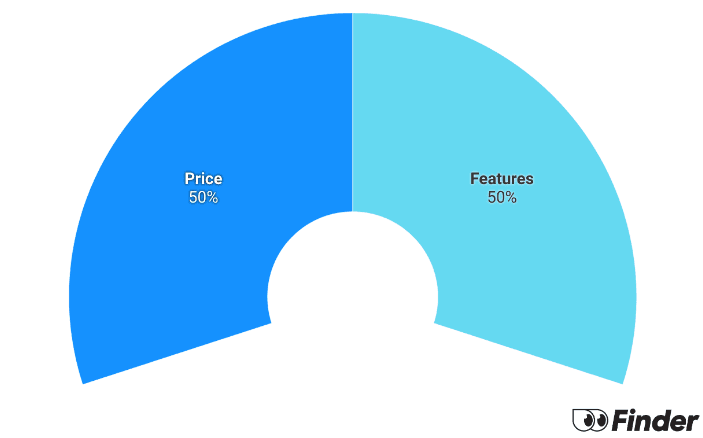Key takeaways
- Counselling and psychology is covered by some extras insurance policies.
- Medicare can also cover appointments with a psychologist with a GP referral.
- Most extras policies have relatively short waiting periods for psychology
What is psychology?
As far as health care is concerned, psychology is professional counselling or therapy for a range of mental issues, conducted by a trained clinical psychologist. These issues can be anything from a diagnosed mental illness like bipolar disorder to short-term issues like work-related stress.
What can a phychologist help with?
The main job of a psychologist is to help people cope with whatever is troubling them mentally, from everyday concerns to more complex mental illnesses. They do this by using a range of therapies that can be collectively called "psychotherapy". Through psychotherapy, patients can learn any number of new skills including better ways to think, act, communicate and manage their emotions.
A psychologist might be able to help with:
- Anxiety
- Depression
- Schizophrenia
- Bipolar
- Obsessive-compulsive disorder
- Eating disorders
- Post-traumatic stress disorder
- Everyday stress
- Relationship issues and marriage counselling
- Phobias
- Addictions
- Grief
- The mental aspect of pain management
- Post-natal depression
Note that psychologists don't prescribe medication. You would need a psychiatrist for that. That said, your GP could prescribe some medications related to your condition if required.
Is psychology covered by Medicare?
Yes, Medicare can cover some psychological services, but you'll need a GP referral. The Better Access to Mental Health Care initiative lets people claim up to 10 psychology sessions per year through Medicare.
This can be a good solution if you’re looking for ongoing support. You'll need to see your GP first and have them give you a mental health support plans an referral to a specialist. At that point, find a psychologist that has capacity (which can be a challenge) and make an appointment.
Out of pocket costs for psychology under Medicare
Medicare will rebate you $96.65 per 50+ minute session with a general psychologist, and $141.85 for a session with a clinical psychologist as long as you are on a mental health treatment plan. If the actual cost for a session is greater than this, you’ll have to pay the difference. When you are booking your appointment, remember to ask for the fees up front so you know how much out-of-pocket expense to expect.
How does private health insurance cover psychology?
Most insurers offer psychology cover with their extras policies. The main benefit of using private health for your mental health care is the speed of care. You don't need to see a GP first, you don't need a referral and you don't need a mental health treatment plan.
Finder survey: What percentage of Australians say mental health or psychology extras are important to them?
| Response | Female | Male |
|---|---|---|
| Mental health or psychology | 6.51% | 3.33% |
What should you be aware of when using private psychology cover?
When comparing health insurance policies you'll want one that offers the best value, and there's more to value than just price. Keep an eye out for how insurers treat the following:
- Your benefit limits. This is the maximum amount you can claim each year for services like psychology and dental. Sometimes these services will have separate limits (for example, $300 for psych and $300 for dental), but other times they'll have combined limits (using the same example, $600 to use wherever you'd like). A policy with combined limits is often the better choice.
- In-network versus out-of-network providers. Your extras cover will most likely pay for a percentage of each therapy session, while you pay the rest. Some insurers will pay a higher percentage if you use a psychologist in their network. The savings may or may not be worth it depending on the size of their network.
- Waiting periods. If this is a new policy, you'll probably have to wait before you can claim on psychology treatments. If you look hard enough, you may be able to find a special offer that will waive your waiting periods for some treatments including psychology.

"I'd argue that your mental health is just as important as your physical health, and it surprised me to find out that not all health insurance funds cover psychotherapy. I took out a policy with AHM as it was one of the few providers that covered psychotherapy with no waiting periods, so I could get the help I needed sooner rather than later."
Which Australian health funds cover psychology?
Below are a few funds from Finder partners that cover psychology in extras. All prices are based on a single individual with less than $101,000 income and living in Sydney. To see more policies, use the quiz at the top of this page.
Finder Score - Health Insurance Extras
Each month we analyse over 10,000 extras insurance products and rate each one on price and features. What we end up with is a nice round number out of 10 that helps you compare extras cover a bit faster.
We want to compare apples to apples, not apples to apple pie. It doesn't make sense to compare a top extras policy with coverage for hearing aids and braces against a policy designed only for dental. So we've separated all the extras policies on the market into pools and categories. Once in their pools and categories, each product gets a price score and a features score, which are then combined to give the Final Score.
Frequently asked questions
Sources
Ask a question
More guides on Finder
-
Are vaccinations covered by health insurance?
While COVID-19 vaccinations are free in Australia, other vaccines with out-of-pocket costs can be covered by private health insurance with some extras policies.
-
Health insurance for chiropractic treatment
Get discounts on your chiropractic treatment with private extras cover.
-
Health insurance for remedial massage
Remedial massage can help ease pain from general wear and tear as well as specific injuries. This treatment isn’t covered by Medicare but is included in private health insurance extras cover. Find out how private health insurance can cover you for remedial massage therapy.
-
Health insurance for blood pressure monitors
Find out when blood pressure monitors will be covered by Health Insurance and what you stand to receive in a claim.
-
Travel vaccinations and health insurance
Before you travel it's crucial to protect your health from risks found in popular destinations. Learn how extras health insurance can help pay for them.
-
Health insurance for physiotherapy
Physiotherapy services can be beneficial at any life stage, so it could be worth considering and comparing extras health insurance that can cover the cost of this type of treatment.
-
Optical health cover
Optical health cover can ensure you get the care you need to protect your eye health. Compare health insurance policies with optical cover.
-
Health insurance for non-PBS pharmaceuticals
If you're wondering what pharmaceutical costs are covered by private health insurance, we've got a guide to health cover for non-PBS pharmaceuticals here.
-
Health insurance for laser eye surgery
finder.com.au explains how the private and public health system in Australia handles optical procedures and services.
-
Health insurance with gym benefits
This guide takes a look at private health insurance in relation to gym membership and other health-related services.


